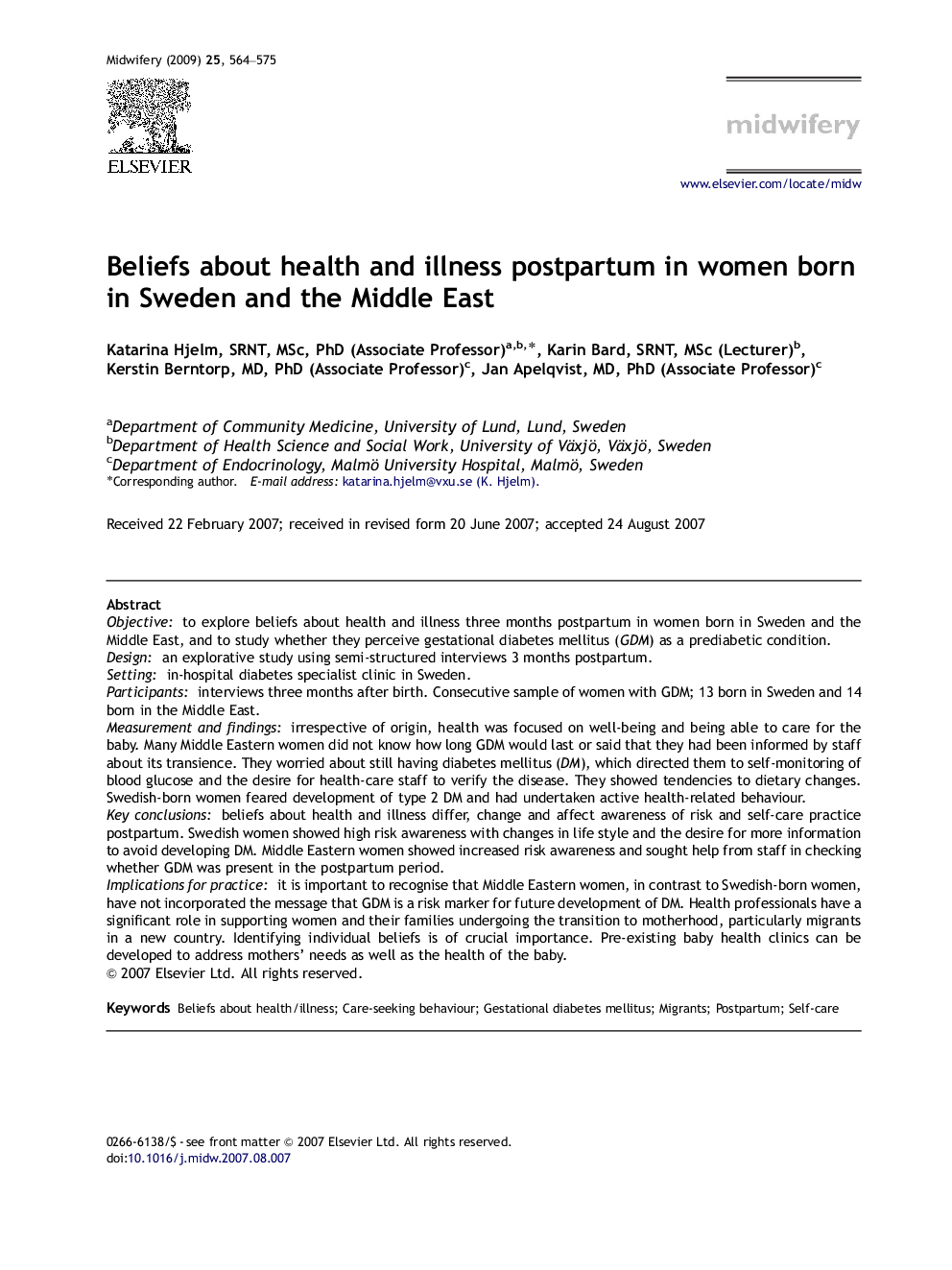| Article ID | Journal | Published Year | Pages | File Type |
|---|---|---|---|---|
| 1085355 | Midwifery | 2009 | 12 Pages |
Objectiveto explore beliefs about health and illness three months postpartum in women born in Sweden and the Middle East, and to study whether they perceive gestational diabetes mellitus (GDM) as a prediabetic condition.Designan explorative study using semi-structured interviews 3 months postpartum.Settingin-hospital diabetes specialist clinic in Sweden.Participantsinterviews three months after birth. Consecutive sample of women with GDM; 13 born in Sweden and 14 born in the Middle East.Measurement and findingsirrespective of origin, health was focused on well-being and being able to care for the baby. Many Middle Eastern women did not know how long GDM would last or said that they had been informed by staff about its transience. They worried about still having diabetes mellitus (DM), which directed them to self-monitoring of blood glucose and the desire for health-care staff to verify the disease. They showed tendencies to dietary changes. Swedish-born women feared development of type 2 DM and had undertaken active health-related behaviour.Key conclusionsbeliefs about health and illness differ, change and affect awareness of risk and self-care practice postpartum. Swedish women showed high risk awareness with changes in life style and the desire for more information to avoid developing DM. Middle Eastern women showed increased risk awareness and sought help from staff in checking whether GDM was present in the postpartum period.Implications for practiceit is important to recognise that Middle Eastern women, in contrast to Swedish-born women, have not incorporated the message that GDM is a risk marker for future development of DM. Health professionals have a significant role in supporting women and their families undergoing the transition to motherhood, particularly migrants in a new country. Identifying individual beliefs is of crucial importance. Pre-existing baby health clinics can be developed to address mothers’ needs as well as the health of the baby.
